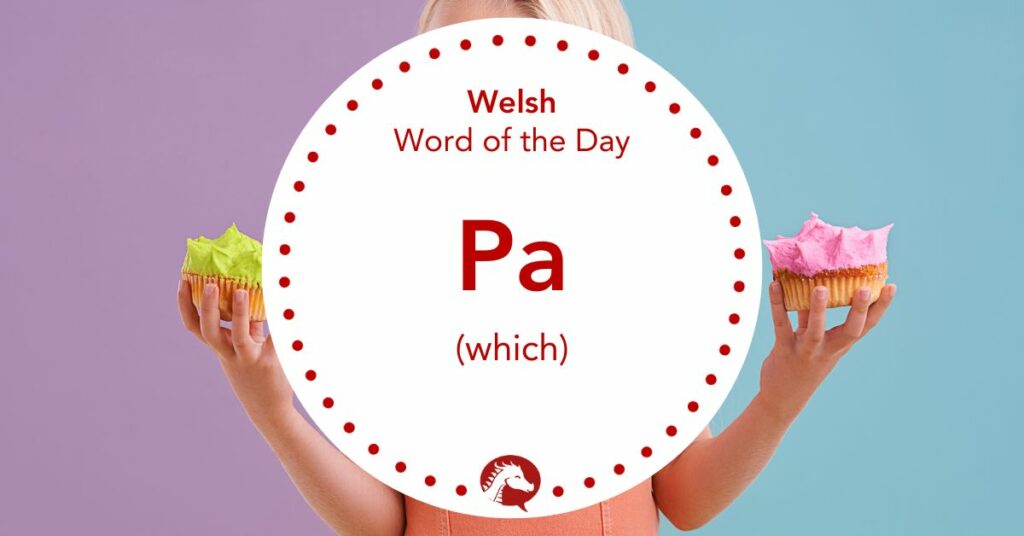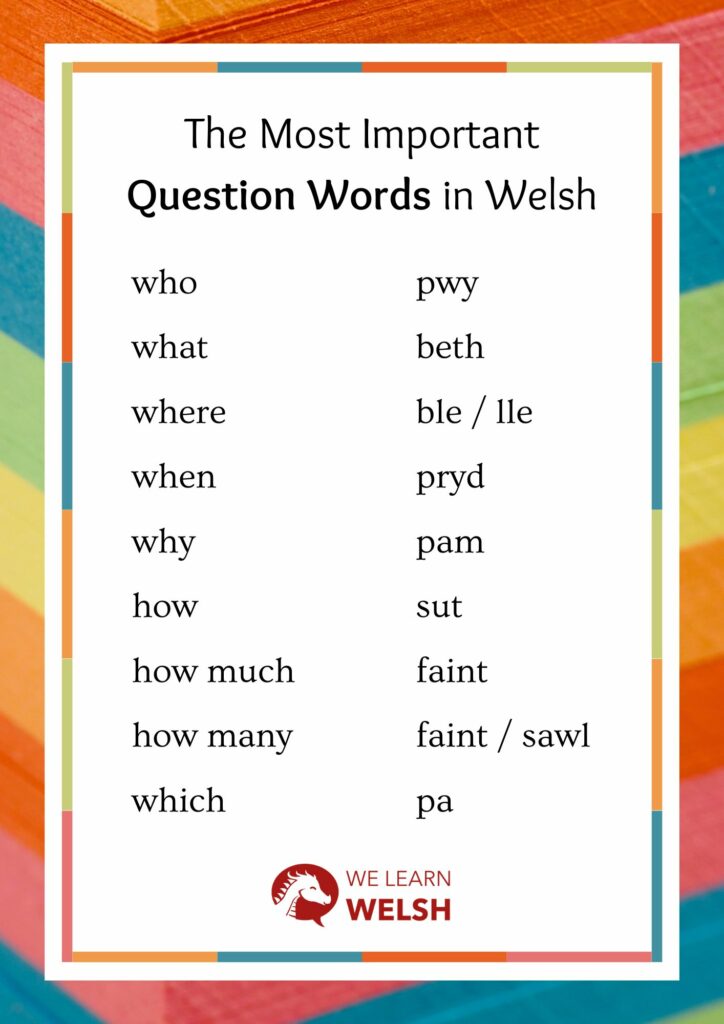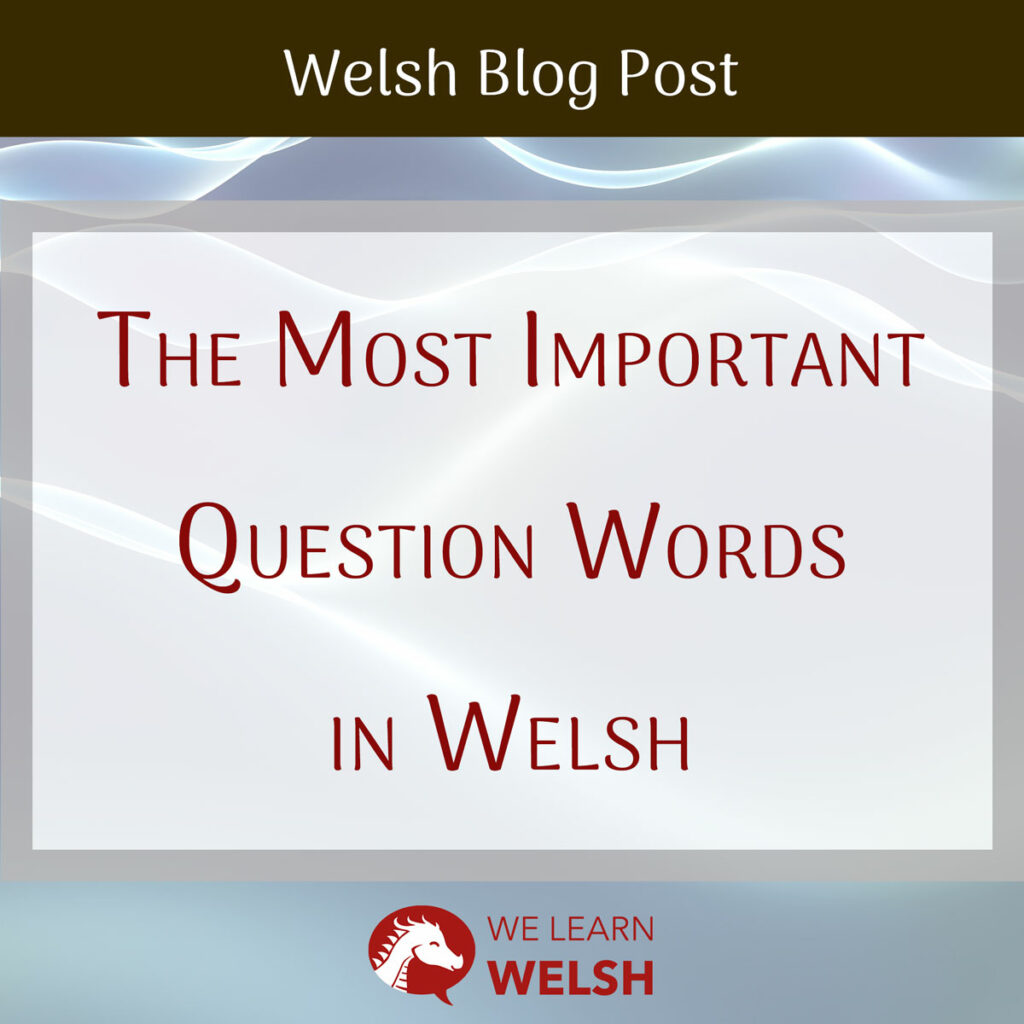Question words, also known as open question words, play a crucial role in helping individuals gather information about their surroundings. Unlike yes-no questions, open questions allow for a wide range of responses, necessitating answers that go beyond a simple ‘yes’ or ‘no’.
In the Welsh language, there are several methods to construct questions using open question words, and many of these have direct equivalents in English. Let’s explore them now!
How to Say “Who / Whom / Whose” in Welsh – Pwy
Pwy is the Welsh word for who, whom and whose.
When used to mean who, it stands in the place of the subject. In the case of the examples below, the subject is John.
- Pwy sy’n dod i’r parti? = Who is coming to the party?
(Mae John yn dod i’r parti. = John is coming to the party.) - Pwy yw’r dyn dirgel hwnnw? = Who is that mysterious man?
(John yw’r dyn dirgel hwnnw. = John is that mysterious man.)
When pwy assumes the meaning of whom, it replaces the object and may be preceded by a preposition such as i, gyda, â, and so on.
- Pwy welaist ti? = Whom did you see?
(Gwelaist ti John. = You saw John.) - Â phwy wyt ti’n siarad? = With whom are you speaking?
(Rwyt ti’n siarad â John. = You are speaking with John.) - Ar gyfer pwy mae’r arian? = For whom is the money?
(Mae’r arian ar gyfer John. = The money is for John.)
Pwy can also mean whose when it follows a noun. It is often seen in the company of the word biau, meaning “who owns / to whom belongs”.
- Car pwy yw hwn? = Whose car is this?
- Pwy sy biau’r rhain? = Whose are these? (literally “Who owns these?”)
Pwy also appears in the expressions Pwy sy’n gwybod? and Pwy a ŵyr?, both of which translates to Who knows?
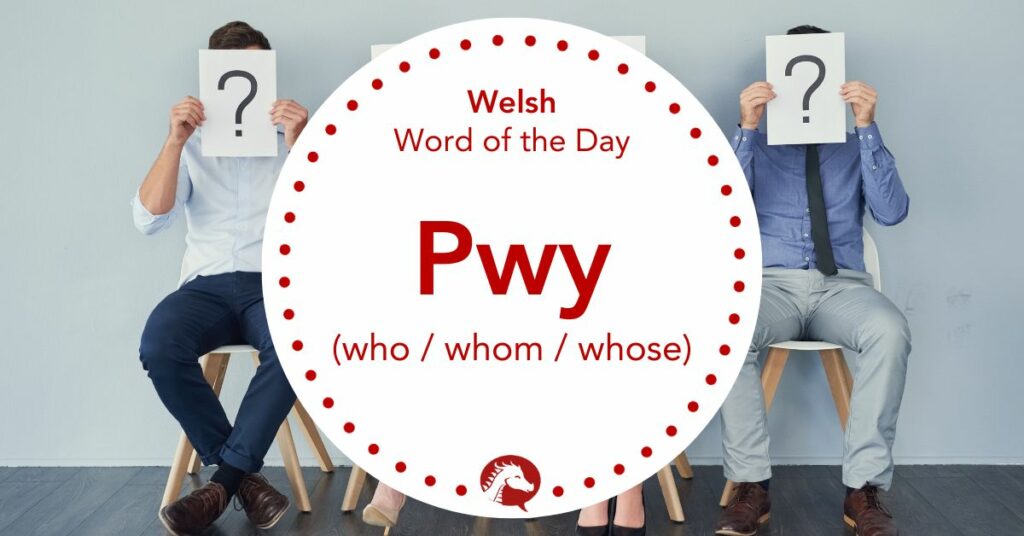
How to Say “What” in Welsh – Beth
Beth is the most formal way to say what in Welsh.
However in speech and in more informal contexts, you will certainly come across the abbreviated form be’.
- Beth wyt ti’n ei wneud? = What are you doing?
- Be’ ti’n ‘neud? = Whatcha doin’? / What are you up to?
Beth can also be preceded by prepositions such as am, i, ar gyfer, and so on when it is the object of the sentence, as in the following examples.
- Am beth wyt ti’n aros? = What are you waiting for? (literally “for what are you waiting”)
- I beth mae hwn? = What is this for? (literally “for what is it”)
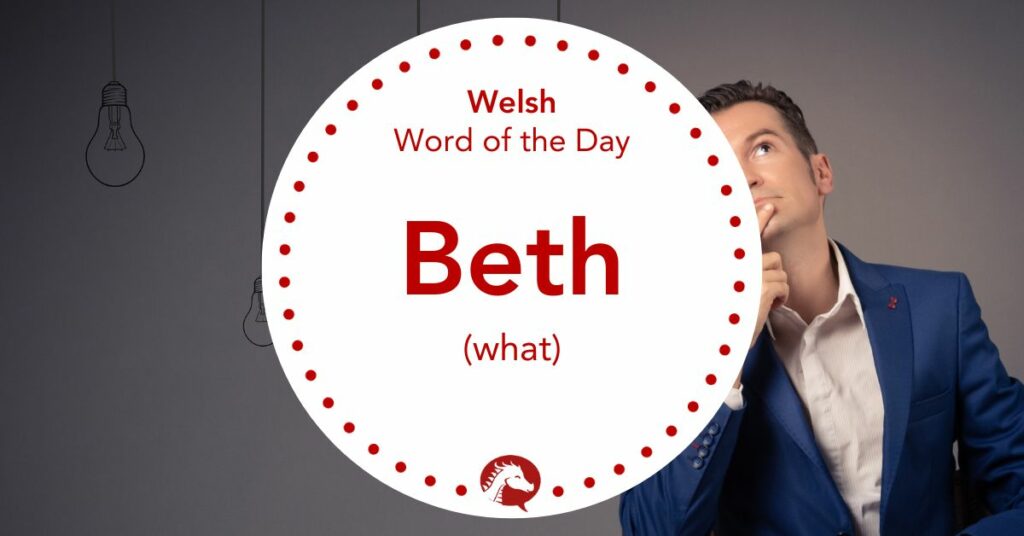
How to Say “Where” in Welsh – Ble / Lle
There are two translations for where in Welsh: ble and lle. The former is more common in the south of Wales, whereas the latter is preferred in the north. Ble is also the correct form in written Welsh. Note that lle can also mean place or space in Welsh.
- Lle wyt ti’n byw? = Where do you live?
- Ble wyt ti’n mynd yfory? = Where are you going tomorrow?
It can be preceded by the preposition o (from), which may cause lle to mutate to le.
- O le / lle wyt ti’n dod? = Where do you come from? (literally “from where do you come”)
Interesting fact: The word ble comes from pa (which) + lle (place). The mutation produces pa le (or p’le for short) which, over time, became ble.
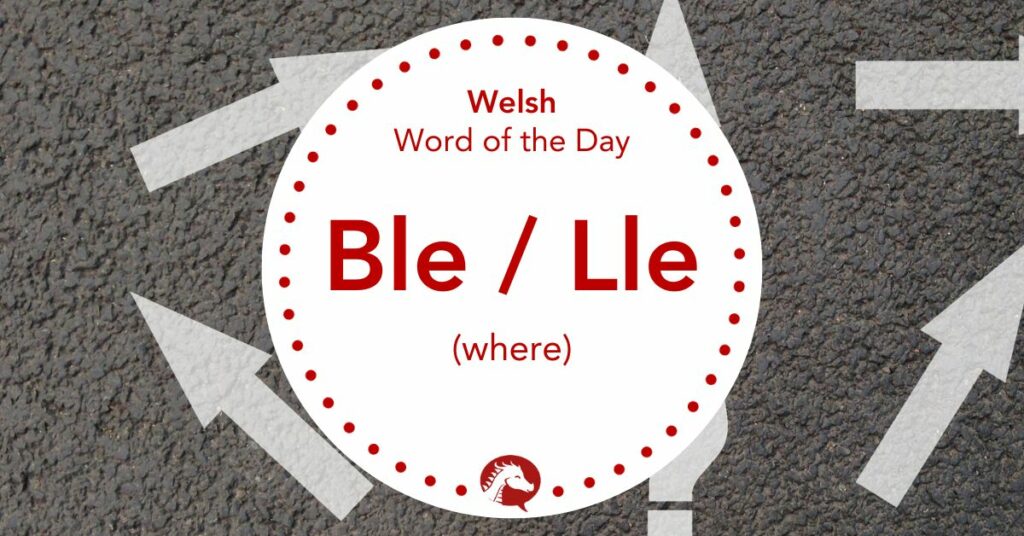
How to Say “When” in Welsh – Pryd
In questions, pryd (or pa bryd) is how you would say when in Welsh. It can literally be translated as “at what point in time”?
- Pryd mae John yn gadael? = When is John leaving?
- Pryd brynoch chi’r rheina? = When did you buy those?
Here are a couple of common time expressions that contain pryd:
- ers pryd = since when / how long
- tan pryd = until when / how long (future)
In Welsh, there is yet another word for when, which is pan. Unlike pryd, which functions as an adverb, pan acts as a conjunction linking two pieces of information. It doesn’t denote “at what point in time”, but rather “at the time (when)”.
- Lle roeddet ti’n byw pan oeddet ti yn yr Eidal? = Where did you live when you were in Italy?
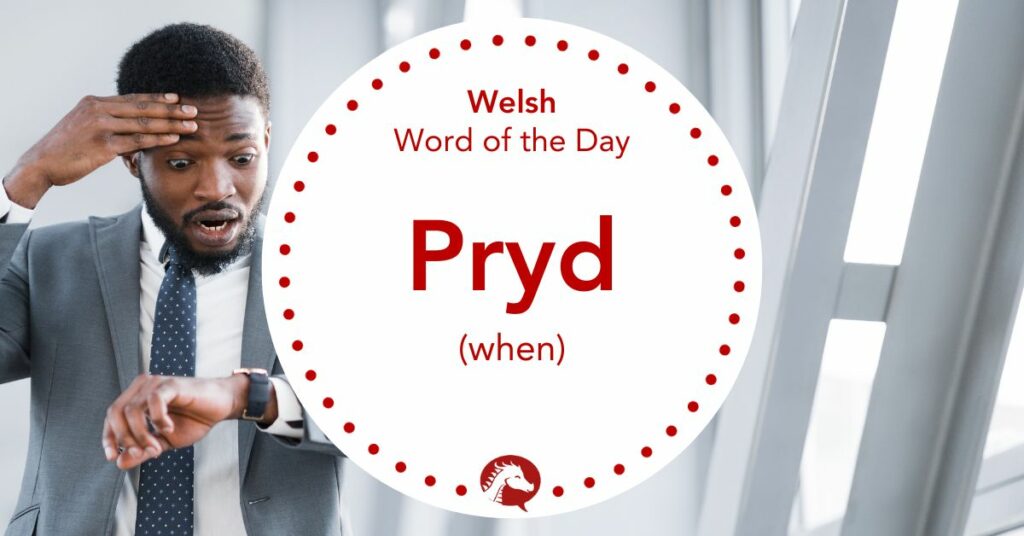
How to Say “Why” in Welsh – Pam
Pam is the question word for why in Welsh.
- Pam mae Sara yn dysgu Cymraeg? = Why is Sara learning Welsh?
- Pam na ddoi di efo fi? = Why don’t you come with me?
A substitute for pam is am ba reswm which translates to for what reason in English.
It is also used in the set phrase Pam lai? which means Why not?
- Ti eisiau mynd allan efo fi? – Pam lai? = Do you want to go out with me? – Why not?
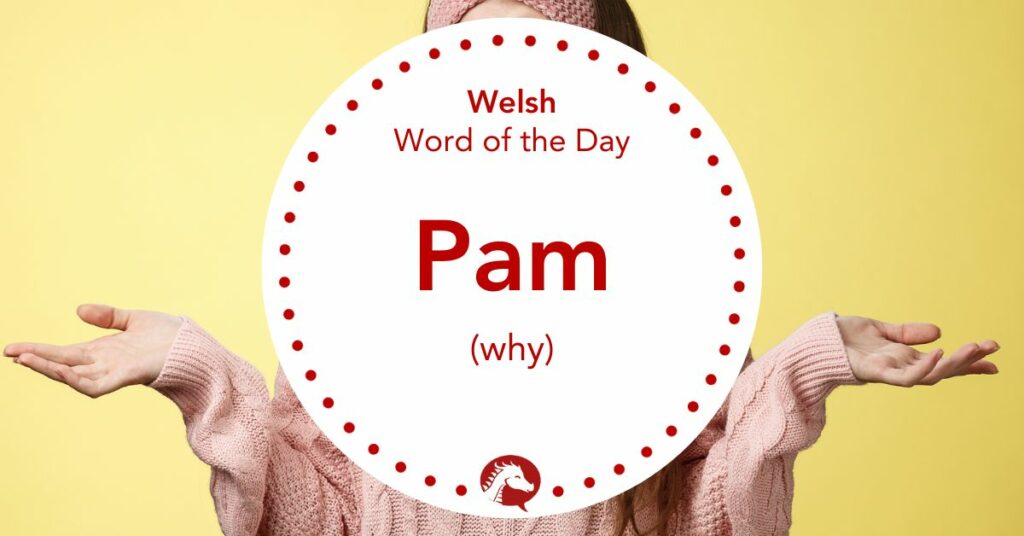
How to Say “How” in Welsh – Sut
Sut is the word for how in Welsh. Note that in the south, it is pronounced shwt.
- Sut wyt ti? = How are you?
- Sut alla i wneud hyn? = How can I do this?
In the south, you may also see shwt replaced by ffordd (way).
- Ffordd ych chi’n gwybod? = How do you know?
When how is followed by an adjective, such as big or pretty, sut must be replaced by the expression pa mor.
- How big was it? = Pa mor fawr oedd o?
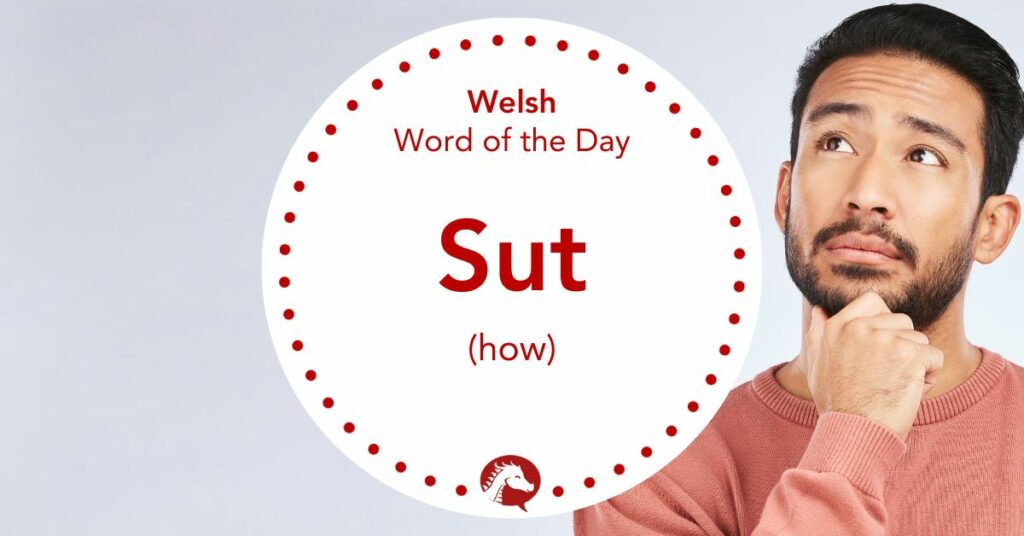
How to Say “How much / many” in Welsh – Faint
How much and how many in Welsh can both be expressed using the word faint. Note that faint requires the preposition o (of) before the things being counted (e.g. faint o bobl = how many people).
- How much is the ticket? = Faint yw’r tocyn?
- How many people will be there? = Faint o bobl fydd yno?
How many can also be expressed with the word sawl. Compare the two sentences below:
- Faint o blant sy gen ti? = How many children do you have?
- Sawl plentyn sy gen ti? = How many children do you have?
As you can see, sawl must be followed by the singular form of a noun (e.g. plentyn = child) whereas faint is always followed by the plural form (e.g. plant = children).

How to Say “Which” in Welsh – Pa
Finally, we come to our last question word, which, which corresponds to the Welsh pa.
- Pa ffilm welwch chi? = Which film will you see?
In the south, don’t be surprised if you hear pwy being used instead of pa to mean which.
- Pwy het bryni di? = Which hat will you buy?
The Welsh for which one is, unsurprisingly, pan un.
- Pa un wyt ti eisiau? = Which one do you want?
